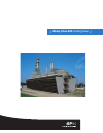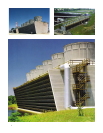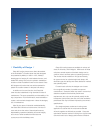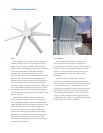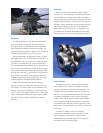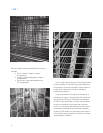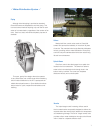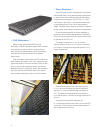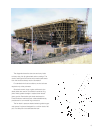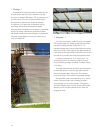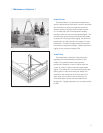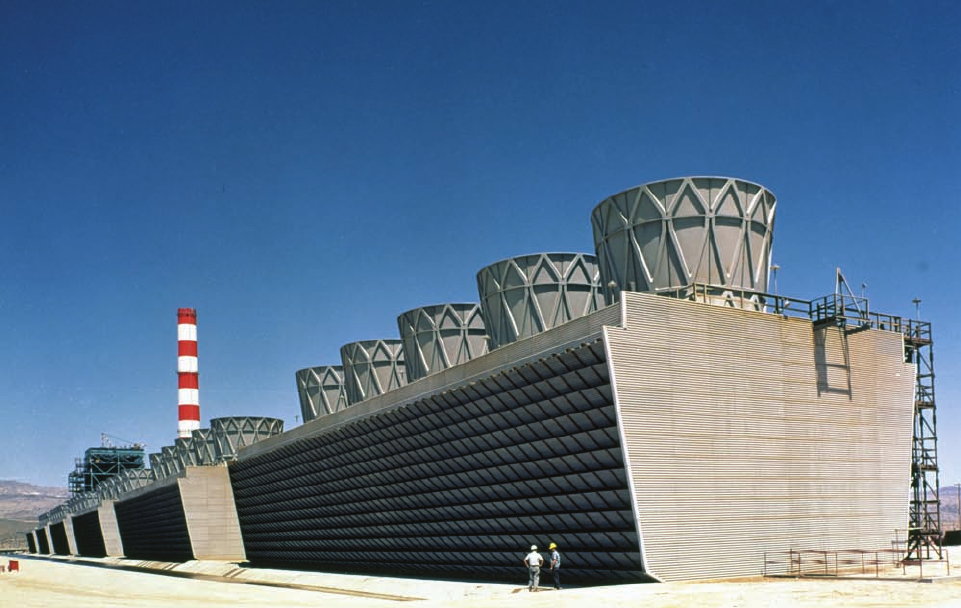
3
/ Flexibility of Design /
Class 600 cooling towers are a direct descendent
of the Doubleflow
®
crossflow tower that was designed
and patented by Marley in 1938. In 1957, Marley’s
development of hanging fill, wide indented louvers, and
stable FRP velocity-recovery fan cylinders enabled the
evolution of that Doubleflow tower into the classic Class
600 shape and function that has set the standard for
splash-fill crossflow towers for the past half-century.
In addition to form and function, the Class 600
tower has also established a high standard for ease of
maintenance. The open accessibility and cleanability of its
key components—fill, drift eliminators, water distribution
system, and mechanical equipment—takes the drudgery
out of maintenance.
After 50 plus years of industrial market leadership,
the Class 600 continues to be the tower of choice for
users who know the value of thermal performance,
dependability, operational reliability, structural integrity,
and a host of other benefits that have become
synonymous with the Marley name.
Class 600 cooling towers are available in various cell
sizes, fill air travels, and fill heights. Within each of these
cell plans, several aspects of the basic design can be
varied in order to achieve optimum operating economy.
The choices include variations in fill type and density,
fan type and size, fan cylinder height and shape, drift
eliminator type and density and water distribution method
and operating head.
For each basic cell size, the designer can choose
from a significant number of possible component
combinations. Several of these may result in economical
selections capable of the thermal performance
requirements, but only one will optimally satisfy the fan
horsepower, pump head, plan area, and other evaluation
parameters that may have been imposed by the owner’s
specifications.
Our design engineers review each cooling tower
application to assure that the components selected
will work together as efficiently as possible. Computer
optimization assures maximum cooling from a given tower
cell size for each set of design performance conditions.



